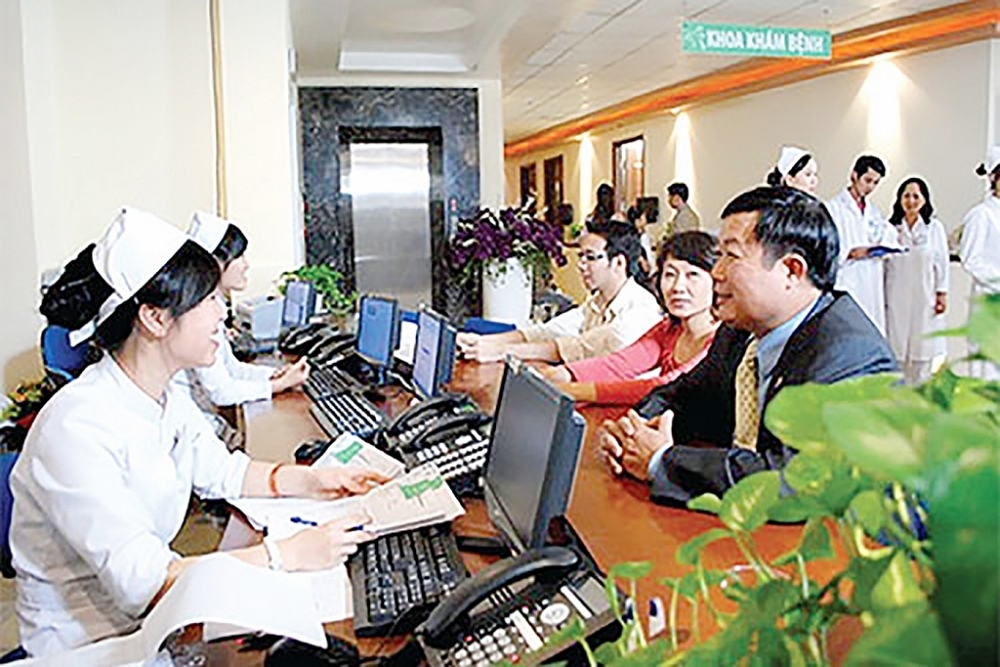What's new in the financial autonomy of public non-business units?
New regulations in Decree No. 60/ND-CP on financial autonomy mechanism of public non-business units and financial autonomy mechanism of public non-business units will soon take effect. From August 15, this has been concretised and unified with the current legal system on the State budget, public investment and public asset management.

Decree No. 60 has added regulations on financial autonomy of public non-business units in the health sector. Photo: Internet
Improve autonomy for public non-business units
According to Nguyen Truong Giang, Director of the Finance and Administration Department of the Ministry of Finance, Decree No. 60 has specified guidelines and orientations on salary reform. Previously, Decree No. 16/2015/ND-CP stipulated public non-business units pay salaries according to ranks, grades, positions and allowances prescribed by the State. The payment of additional income of employees will be based on the financial performance of the year. This regulation has not encouraged public non-business units and employees to increase exploitation of non-State budget revenues.
With the provisions of Decree No. 60, from implementation of the new salary regime according to Resolution No. 27-NQ/TW, public non-business units have a high degree of autonomy and are paid according to their performance like businesses. Units self-funding part of recurrent expenditures or units covered by the State budget for recurrent expenditures will pay salaries according to ranks, grades, positions and allowances according to current regulations. This content aims to create motivation to encourage public non-business units to exploit revenue sources and improve financial autonomy.
According to the leader of the Department of Finance and Administration, Decree 60 amends and supplements regulations on the level of financial autonomy of public non-business units. Previously, determination of the level of financial autonomy of the unit was not differentiated according to the degree of autonomy in revenue and expenditure tasks of service activities. With Decree No. 60, classification of financial autonomy of public non-business units is made based on clearly separating the performance of political tasks assigned by the State and business and service activities of public non-business units.
In addition, Decree No. 60 adds specific regulations on autonomy in joint venture and association activities that Decree No. 16 does not yet have. According to Nguyen Truong Giang, this regulation is also to ensure the uniformity and general consistency of the distribution of results from joint venture activities of public non-business units according to the Law on Management and Use of Public Property, and at the same time contribute to mobilising all social resources to invest in public non-business services.
Another new feature of this decree is the addition of regulations on financial autonomy of public non-business units in health - population and education, training and vocational education. This is a complex field with its own peculiarities. Previously, the Government required ministries to assume the prime responsibility for and develop their own autonomy mechanisms, but now, after five years of implementation; most of the ministries managing branches and fields have not completed their tasks. Therefore, this time, the Government put those specific regulations into the General Decree.
Promote the socialisation of some types of public non-business services
According to Nguyen Truong Giang, the policy on renovating the management mechanism and operation mechanism of public non-business units, focusing on the financial mechanism, has been set out by the Party, the National Assembly and the Government for a long time. Up to now, with the Government promulgating Decree No. 60, it has contributed to completing the legal basis in the direction of giving full autonomy in terms of organisational structure, personnel and finance; encourage eligible public non-business units to carry out equitisation. In which, the determination of the financial autonomy of public non-business units has been clearly separated from the performance of political tasks assigned by the State and business and service activities; on that basis, determine the support from the State budget only after the unit has used the non-business revenue.
Public non-business units with a high degree of financial autonomy (self-financed for investment and recurrent expenditures or self-financed for recurrent expenditures) have been proactive in deciding the level of professional activities, management in accordance with the financial resources of the entity and it must be specified in the internal spending regulations. For example, to invest, improve the quality and scale of non-business activities, gradually improve the organisation of service activities; units can borrow capital from credit institutions to invest, build infrastructure; get preferential credit loans from the State or receive interest rate support for investment projects using loans from credit institutions; may mobilise capital from officials and employees in the unit in accordance with their functions.
Notably, for public non-business units that partially self-finance recurrent expenditures, Decree No. 60 supplements regulations into three groups, including: units that self-finance over 70% of recurrent expenditures; the unit itself covers from 30 to less than 70% of recurrent expenditure; the unit self-guaranteeed less than 30% of recurrent expenses. Nguyen Truong Giang said the classification of this group ensures fairness in stipulating the level of spending, setting up and using the funds in accordance with the financial resources of the unit. The group of self-financed units from 70% to less than 100% of recurrent expenditure will be encouraged to gradually raise the level of autonomy to ensure recurrent expenditure.
The decree also stipulates that the unit can self-finance investment and recurrent expenses. Units that cover their own recurrent expenditures may open accounts at commercial banks with revenues from non-business, business or service activities. Units that cover a portion of their recurrent expenditures may open accounts at commercial banks with revenues and expenditures from service activities not using the State budget.










